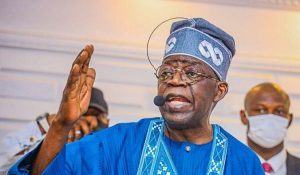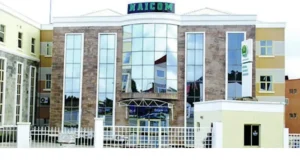Nigeria’s external reserves took a 38 per cent slump from its $65.85 billion all-time high (ATH). The impressive figure was achieved on August 8, 2008, about 13 years ago. In the heydays, crude prices had crossed the magical $100 per barrel, and the country seized the moment to build its strategic reserves as the Minister of Finance, Dr. Ngozi Okonjo-Iweala, would explain years later.
For the first time since last October, the reserves broke the $40 billion support last week in a downtrend path even in the face of a bull run in the oil market. The performance of the reserves in the past few years is, indeed, a caricature of the pre-2009 bullish era. They have also become volatile – rise when there are proceeds from external sources such as Eurobonds and fall before the growth consolidates.
Still, there is something more complicated about this than the mere comparison of external reserves data of the two eras. From 2007 to 2008, which is considered the golden era of Nigeria’s reserves accumulation, the average monthly import bill of the country was $3.53 billion.
Sadly, the desire for imported commodities seems more pervasive today than it was back then. In the first three quarters of last year, the average monthly import was estimated at $5.88 billion, 66 per cent higher than what it was about 14 years ago when there was sufficient import cover and a relatively stable foreign exchange (forex) market.
There is a consensus among economists that six-month import-cover reserves are healthy for any economy. When the reserves fall below the six-month benchmark, there is a serious cause for worry, Dr. Biodun Adedipe, Chief Consultant of B. Adedipe and Associates Limited, said.
Presently, the reserves cover nearly seven months of imports if the value of importation does not increase. But that Nigeria’s imports will remain constant is unlikely, as it would contradict historical trends.
For instance, the value of last year’s nine-month imports was 10 per cent higher than that of the entire 2020. Even when adjusted for foreign exchange differential, the full-year change would still be higher by, at least, 10 per cent. From 2016 to 2020, the average year-on-year (YoY) growth in import spending was 25 per cent, in naira terms. The last time the country recorded negative growth in the value of imports was 2015 when it dropped by N676.4 billion.
If the data trend continues this year and import bills inch up, it suggests that the current reserves are short of six-month import cover. David Adonri, an economist, said a more radical import restriction policy would be required to keep the reserves fairly stable going forward. But this is a pre-election year when radical reforms and hardline policies are often considered inadvisable. Already, experts have suggested that economic support would be traded for political convenience.
President Muhammadu Buhari’s body language and actions tend to confirm the argument. The far-reaching reforms he promised seven years ago have not happened. As his political party walks a tightrope ahead of general elections, which will be held in 12 months, he appears remotely distant from embarking on major reforms. Recently, he signed the 2020 budget without much hesitation despite the wide variation between the figures he sent to the National Assembly and what the two chambers passed. Less than a month ago, the country was jolted by his effective reversal of the planned removal of the controversial premium motor spirit (PMS) subsidy, which is a major clause in the Petroleum Industry Act (PIA) he signed into law at the close of last year.
Understandably, the President appears to have embraced the waiting game. And he has communicated clearly with the botched PIA, more than any other way, that it is too late in the lifetime of the administration to see major reforms in the fiscal space.
In the same token, the much-expected foreign exchange reform is viewed with scepticism. The change is expected to lead to a market-led exchange rate regime and a gradual easing of the market rigidity. Godwin Owoh, a professor of applied economics, had said that such a radical policy thrust was not likely going to happen this year as economic managers would be too busy in the political space to pay serious attention to the economy.
A floating exchange rate regime, which the World Bank and the International Monetary Fund (IMF) have canvassed vigorously, is expected to replace the current static disequilibrium with a dynamic equilibrium to set a market-clearing rate, narrow the arbitrage (which is an incentive for round-tripping and other anti-market tendencies) and make the market more attractive for capital importation.
An alternative to this, experts have warned, is the continuous liquidity crisis and pressure on the market, leaving the Central Bank of Nigeria (CBN) with limited monetary space to operationalise a more efficient forex allocation. In the absence of reforms, the Bank will continue its routine intervention in the Nigerian Autonomous Foreign Exchange (NAFFEX), a window that was created to lead a market-led currency trading. These have huge and multi-layered consequences for the external reserve position of the country.
First, the CBN will continue to defend the artificial price of the naira from the limited external reserves. That would further deplete it and expose the local currency to more pressure. The country would also lose the opportunity to attract foreign capital. Investment experts have been grumbling about the growing rigidity in capital mobility. Many foreign investors who reportedly left the country’s capital market in the last few years did so owing to limited access to FX. Some of them invested only to realise the currency crisis was as bad as a conventional capital exportation control.
Now, investors have a new challenge to deal with. Transactions valued at N100 million and above are now subjected to capital gain tax (CGT) except proceeds are reinvested within a limited period. Capital market players have described the new tax as a disincentive to investors, including foreigners. The new policy comes at a time other economies are normalising their monetary frameworks after the COVID-19 stint. That, IMF, the World Bank and other institutions have warned could trigger massive capital out from emerging markets, including Nigeria.
While the FX supply side is inadvertently being strangled, the demand continues an upward trend for many reasons. Local production, according to an economist and former Director-General of the Lagos Chamber of Commerce and Industry (LCCI), Dr Muda Yusuf, still faces severe challenges ranging from FX shortage, high energy/operational cost to multiple taxations.
With local input still a major challenge, the local manufacturers depend on importation for as much as 70 per cent of the inputs. Hence, Nigeria relies on foreign economies for finished products as well as inputs, a demand that is constantly growing. Apart from the economic demands, economists have also warned that the evolving partisan activities would create their own pressure this year.
Thus, while the external reserves may not expand as an expedient of a demanding economy, the CBN has a tough responsibility to meet the growing requests from the stagnant pool. Already, the Chief Executive Officer of Financial Derivatives Company Limited, Bismarck Rewane, has projected that the monetary authority would require between $8 billion to $10 billion to defend the naira in the coming months. That suggests that the current lean reserves could tumble further.
But does the CBN have to keep the value of the naira, which the Bretton Wood institutions have described as overpriced? Two years ago, the naira was officially devalued, at least, twice. Last year, the apex was forced to ditch the default CBN official rate for NAFEX pseudo-market pricing. Since the 1980s, the value of the naira has been in a race to the bottom, with international institutions always asking for an adjustment at the slightest market crisis.
Today, many economists also consider the current official exchange rate as below the market rate. Yet, they bucked at the possibility of a further devaluation, with ‘possibility’ used in a reference to both political and economic temperature. A weaker naira is often seen as a falling knife as it inflicts more pain on the masses via forex-induced inflation. Meanwhile, overpriced essential commodities keep popping up as a major talking point as the election year approaches.
A former assistant director of the regulatory institution, Stan Ukeje, had faulted the efficiency of NAFEX to drive the reform as envisaged in the FX market liberalisation, saying it is “incomplete” and lacking in depth.
Ukeje said: “The largest earner of foreign exchange in Nigeria, the Nigerian National Petroleum Corporation (NNPC), the Federal Inland Revenue Service (FIRS) and the Federal Minister of Finance are not participants in NAFEX. Therefore, the market is incomplete. It is deprived of the participation of all exporters and importers.”
With FX demand not showing any sign of retreating amid declining supply, Ukeje said, the domestic currency would continue to decline relative to other currencies.
“The Naira Agenda proposed by the CBN but rejected by the government was a lost chance to balance the market. Imagine that Edo, Kaduna, Akwa Ibom, Rivers and Benue state governments receive some of their FAAC revenues in dollars. The NAFEX will reflect different temperaments/sentiments. For the medium to long-term, the exchange rate cannot be stable if the market is not transparent and accountable. When it is transparent, the CBN will intervene only to moderate prices by buying or selling naira in the market,” he said.








